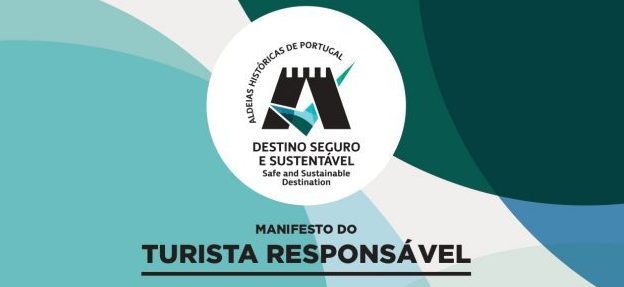
Safe Destination
Historical Villages of Portugal
The Historical Villages of Portugal (AHP) has developed an operational plan to combat covid-19, with the aim of strengthening the 12 villages of the network as a safe and sustainable destination in the current pandemic scenario.
Tourists, the resident population, but also the economic agents and the most diverse entities of the territory, are the targets of a plan that arose from the need identified by the AHP to requalify and adapt the villages as a safe and reliable destination. AHP thus becomes the first destination network, in Portugal, to develop such a comprehensive program in response to covid-19.
The plan, developed in partnership with the consultancy firm Deloitte, was the result of a challenge launched by the AHP, to ensure that the entire ecosystem of tourism installed in the 12 Historic Villages of Portugal has the ability to respond to the new situation, in order to protect the interests of local communities and, simultaneously, convey a sense of security that attracts tourists.
The consultant analyzed the situation in the 12 villages and their ability to adapt to the new reality, particularly in the vectors Accommodation, Catering, Heritage, Mobility, Trade and Nature. To support the analysis, site visits were made, in addition to interviews, questionnaires, and workshops.
The health security diagnosis highlighted the existence of very positive points, but also some points to be reviewed, transversal to several villages or specific to a single one.
The main difficulty transversal to the AHP is related to mobility, since a significant part of the urban fabric of the villages is composed of narrow roads, which do not facilitate the distance in case of large flows of tourists.
The plan stresses the need to raise the awareness of tourists, residents, economic agents and various entities to the effects of the pandemic, since the majority of the population of the villages is in a risk group due to advanced age.
In this sense, and to meet the needs identified, transversal and specific, the plan lists a set of measures to be applied, divided into three axes:
- Digitalization, with the implementation of various measures that digitalize processes, with a view to reducing points of contact;
- Physical, with the development of sanitary adaptation measures in terms of mobility, information, and hygiene;
- Capacity building, with the production of good practice guides on health safety and sustainability (the Responsible Tourist Manifesto is an example of this), the organization of capacity building actions such as "Safe and Sustainable Destination" webinars, but also the implementation of different monitoring systems, in order to assess the evolution of the adoption of mitigation measures implemented, as well as the implementation of technologies with flow management functionality.
Basically, the plan proposes a set of initiatives that, objectively, mitigate the risks of spreading the virus in each Historic Village.
Remember that the Historical Villages of Portugal are also the first destination network worldwide and the first national destination to receive the certification "Biosphere Destination", which distinguished the strategy of AHP in defending the preservation of the territory, nature and the traditions and customs of local people.


